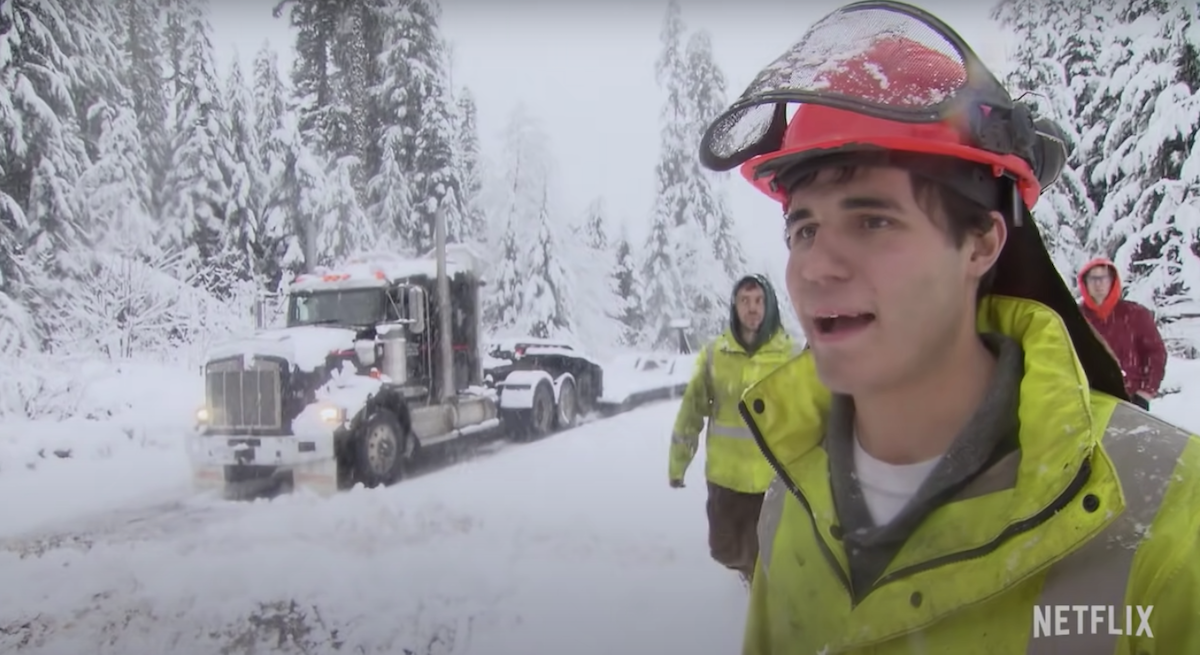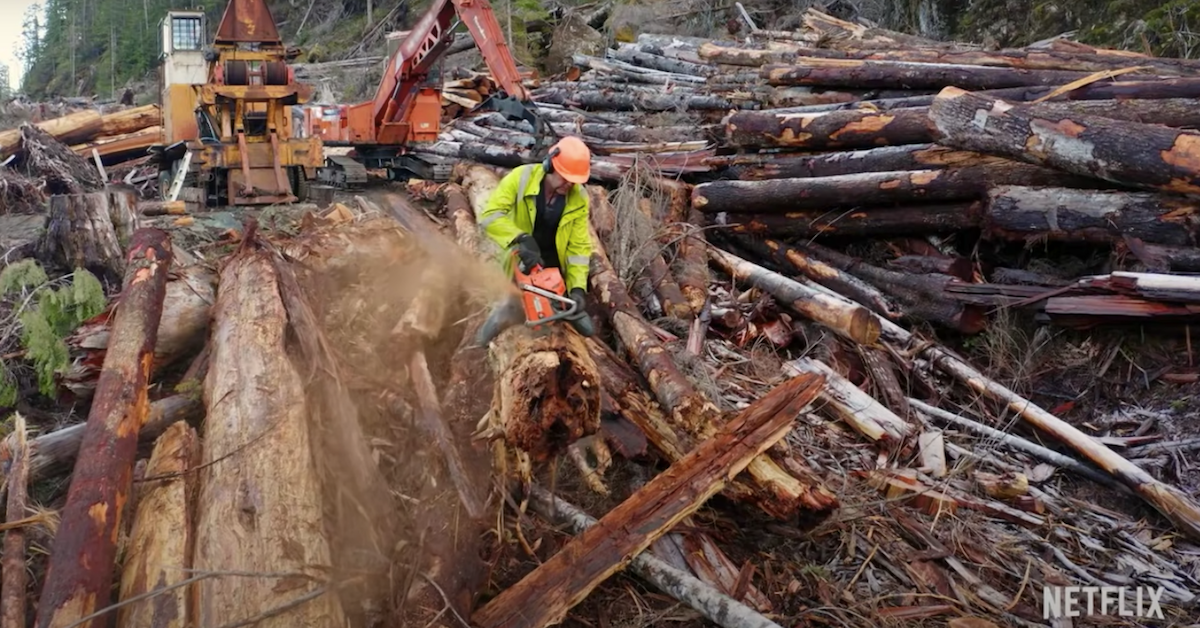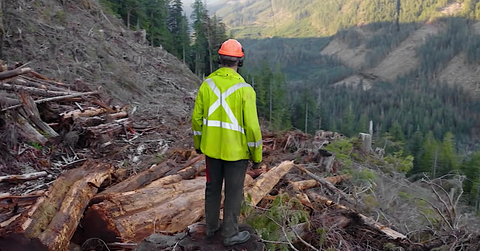‘Big Timber’ Is Coming to Netflix — but Is Logging Environmentally Problematic?
Published June 30 2021, 10:20 a.m. ET
Netflix’s Big Timber is certain to turn a few heads in the coming months. The reality show follows the struggles and adventures faced by a brave but ill-tempered logger, his family, and his quirky crew as they collect and transport lumber on Vancouver Island. But as entertaining as it sounds, one wonders if Big Timber’s relatability creates a somewhat glorified vision of an industry that many environmentalists would call inherently problematic.

What is 'Big Timber' about?
According to Netflix Junkie, the first 10-episode season of Big Timber premiered on the History Channel back in 2020, and its cast of colorful loggers was compelling enough that Netflix decided to feature it on its streaming service. The show features sawmill owner, Kevin Wenstob, his family, and his crew, as they attempt to tame the wild and perilous forests of Vancouver Island, Canada.
Judging by the trailer, it's clear that the lumber business is not easy to manage, especially when Wenstob and his crew have to battle the elements, the topography, and their own finicky equipment. The dense forests of Vancouver Island are fraught with dangers that most logging concerns wouldn’t even dream of endeavoring to try, but Wenstob’s crew is up to the task.
With their lives and literally millions of dollars on the line, the cast of Big Timber must pull out all the stops to bring more than 200 truckloads of timber to market. Everyone has a part to play, from Wenstob’s wife Sarah Fleming, who runs the mill itself, to his loyal and mechanically-inclined son Erik, who takes care of the machinery. It’s a difficult job for anyone, made especially difficult thanks to the untamed locale.
Why is ‘Big Timber’ slightly problematic?
To many people, the logging industry is often used as a symbol for all the environmental problems our world currently faces, thanks to humanity. When left unchecked, logging can cause soil erosion, habitat destruction, and contribute to the climate crisis. On top of that, cutting and transporting that wood often involves heavy, gas-powered machinery and trucks, which emit more greenhouse gases into the atmosphere.

When is logging not a problem?
As bad as logging might seem, there are several ways in which logging can be good for the environment. Believe it or not, trees are a renewable resource. As long as the logging process is regulated, trees can be replanted and regrown in nature. According to Sciencing, forest management services and government organizations are designed for this exact purpose.
They clean up forests, replant two trees for every one that's cut down, keep watch over which tree species logging concerns are allowed to cull, and enforce strict regulation over the number of trees that can be felled. In addition, loggers often target non-native plants in an area, pruning the natural ecosystem of invasive species.
It's also important to note that logging is not the same thing as deforestation. Legitimate logging generally involves regulated practices in places where trees are allowed to be cut down and where they will be replaced, whereas deforestation is just wanton destruction, often used just to make room for the agricultural industry, which poses environmental problems of its own.
From a pure entertainment standpoint, this story is a harrowing adventure of one crew’s struggle to make it in a very competitive and dangerous field. But ultimately, it falls on the viewer to decide how good or bad shows like Big Timber are for the environment. Big Timber drops on Netflix on July 2, 2021.
